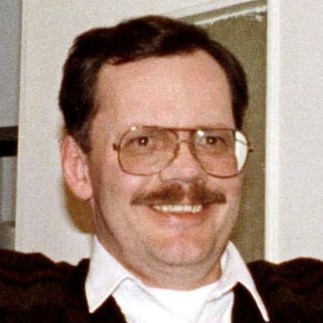People
Remembering Terry Anderson
Monday 6 May 2024
The day he was kidnapped remains inscribed on my memory. 
We played tennis at the same club in West Beirut. We’d have a drink afterwards, swapping stories, high on the dangerous lives we led in another round of Lebanon’s civil war. Terry was a tough guy, never shy to remind you that he’d been a U.S. marine in Vietnam, and that at AP, he had volunteered (yes volunteered! he said with much mirth) for war-torn Beirut.
There was a strut in his stride, and a self-confidence about handling the dangers of Beirut. Hard to be fond of Terry, but easy to respect what he did and how he did it. Occasionally, you’d see the softer side, when he visited the office ITN shared with our American partners, where his girlfriend worked.
Then came that morning. The word, spreading like a fire in the tight world of war correspondents housed together, but competing. News that made you want to put arms around colleagues, not rivals. The sledgehammer, that Terry had been kidnapped leaving the tennis club, by masked gunmen in a Mercedes.
It was March 16, 1985. The date, already printed on my mind before Beirut, sticks with me. Seven years before, March 16, 1978, as a Reuters correspondent in Rome, I had rushed to the scene of the kidnapping of Italy’s former prime minister and political kingmaker, Aldo Moro, head of the ruling Christian Democrats. The memory bank absorbed the sight of his five bodyguards laid out, dead, each under a white sheet stained with blood, one still at the wheel of his car, on Via Mario Fani, a busy street in northwest Rome. In Beirut we all feared the worst that morning.
What followed for Terry proved to be nearly seven years of hell. No other word for it, he said, after his release in 1991. He was the longest held of more than 100 Western hostages kidnapped in Lebanon. He felt lucky that his captors, Iranian-backed Islamic militants, never tortured him. But they beat him, they locked him up in cold, solitary confinement, and shuttled him around in a coffin-like box, before they gave him the company of fellow hostages, even a book or two. George Orwell’s Animal Farm was a favourite.
He would tell you that his faith, as a fairly workaday, non-devout Catholic, kept him alive, but at times he thought he was losing his mind. Once he beat his head against his cell wall so violently that his captors broke their rules and called a doctor. I saw the hint of tears when Terry recalled that, years later when we had a night out in Washington DC after an event for The Committee to Protect Journalists, where he became Honorary Chairman. I had never thought I would see Terry cry.
When he was released, I recall thinking that he was OK, relatively OK. He had grown up near Buffalo, New York, a freezer of a city. “When are you coming home to Buffalo, Terry?” asked a TV reporter. “Not for a long time,” he answered. “It’s just too cold.” His smile told me he could still laugh at himself, and the wider world. “I am who I am,” a line he always used in our days of journalism together.
He was married and divorced three times, won millions from a lawsuit targeting Iranian assets, then lost them in failed business ventures --he joked that his horse farm was paid for by the Ayatollahs. But as the years passed, you came to realise how the tough guy had been so damaged -- a word he even came to use himself -- by 2,454 days in captivity.
The thought chills all of us who lived alongside him before that March morning, a hostage for six years nine months, a prisoner who was the innocent victim of other people’s wars.
Rest in peace, friend. You deserve no less.
-Terry Anderson, former US Marine, AP Journalist, Beirut hostage 1985-1991, born October 27, 1947, died April 21, 2024, aged 76.
(Reuters photo shows Anderson after his release) ■
- « Previous
- Next »
- 64 of 579